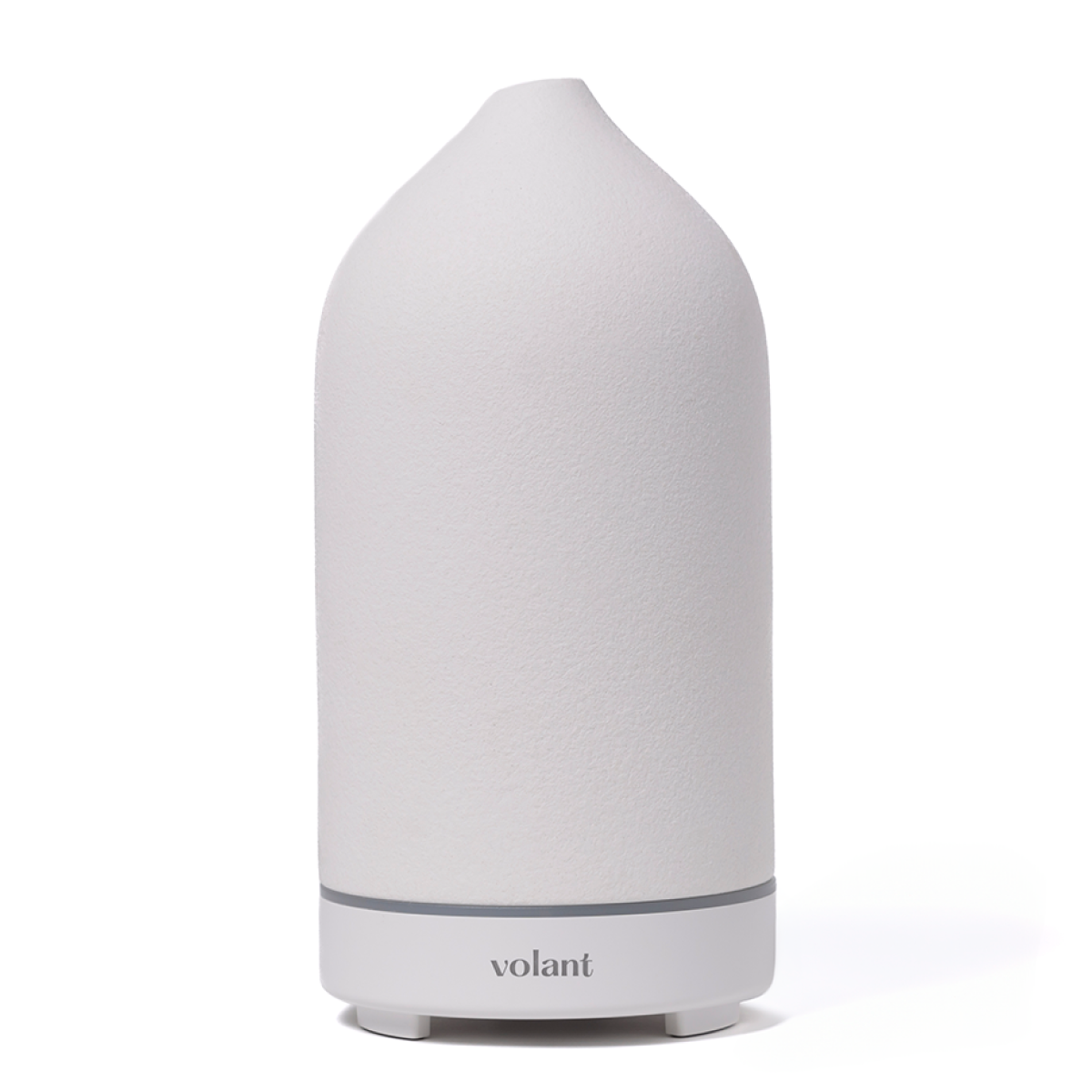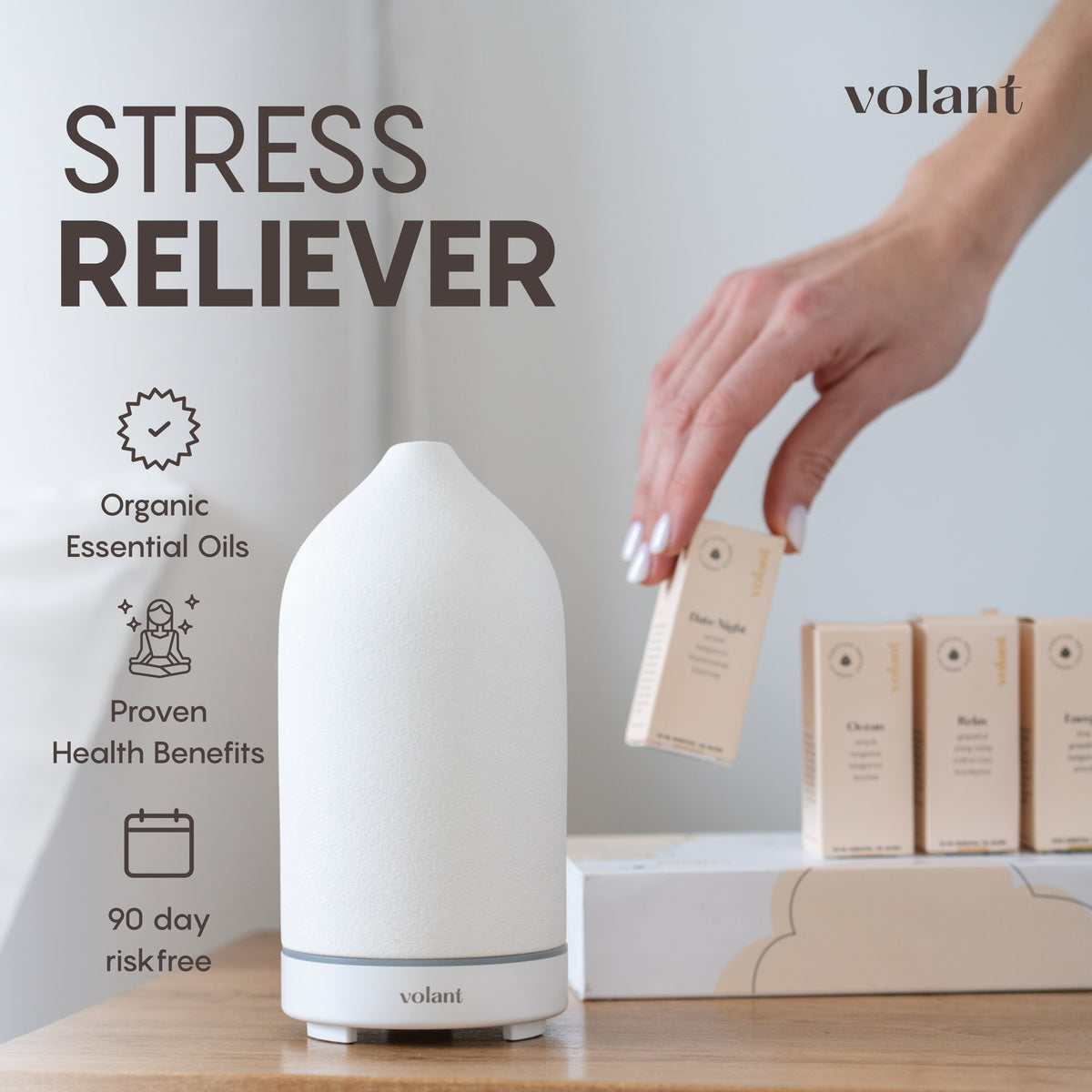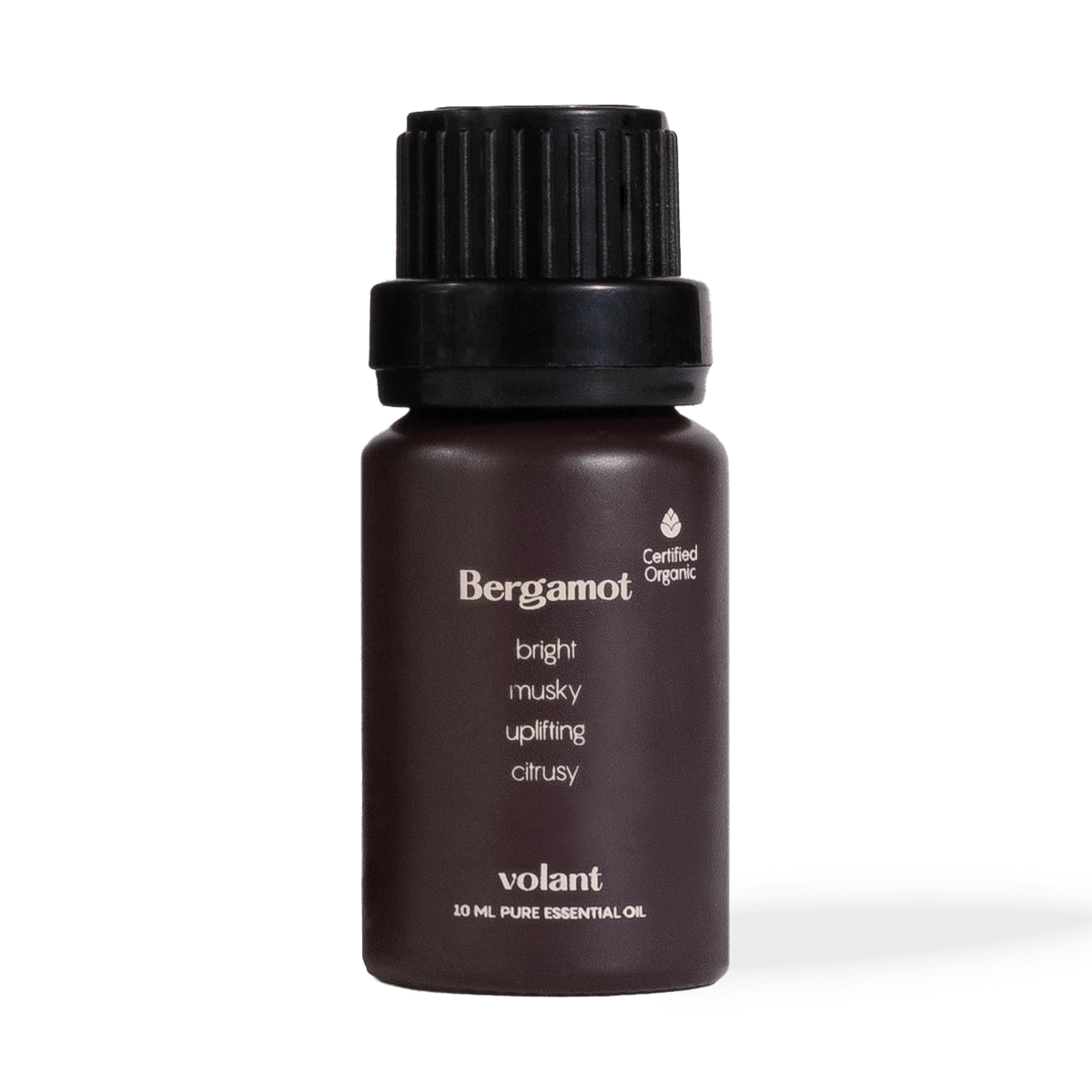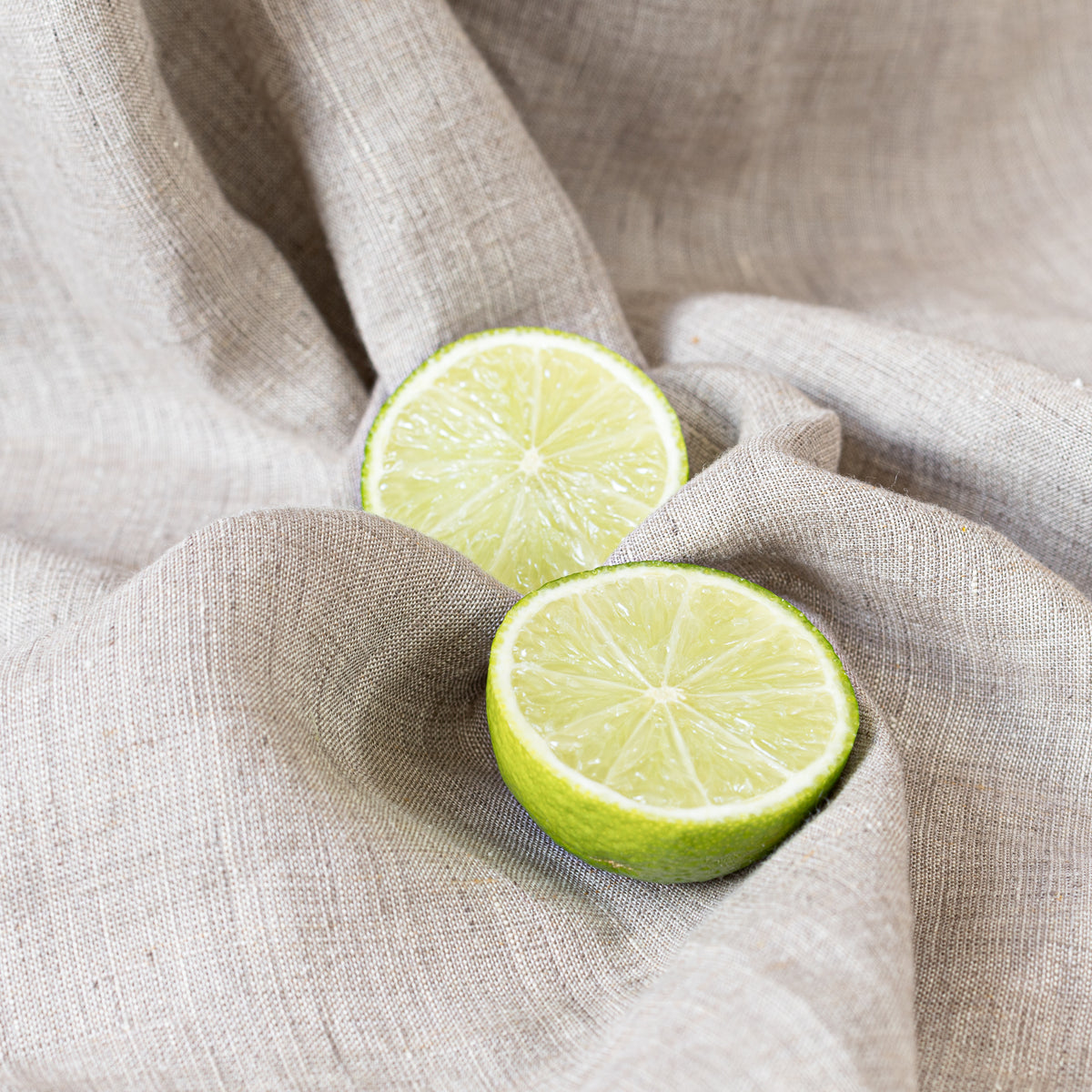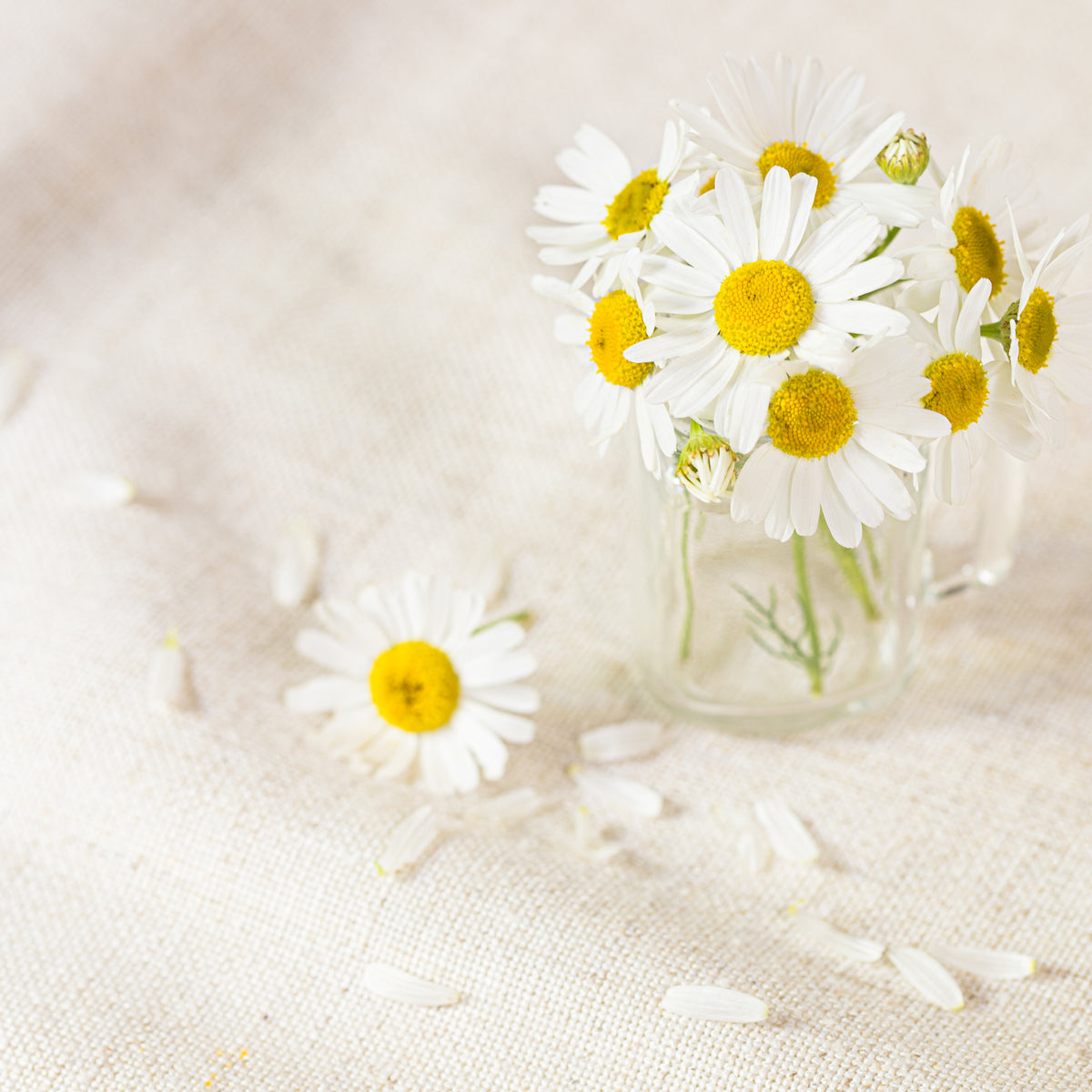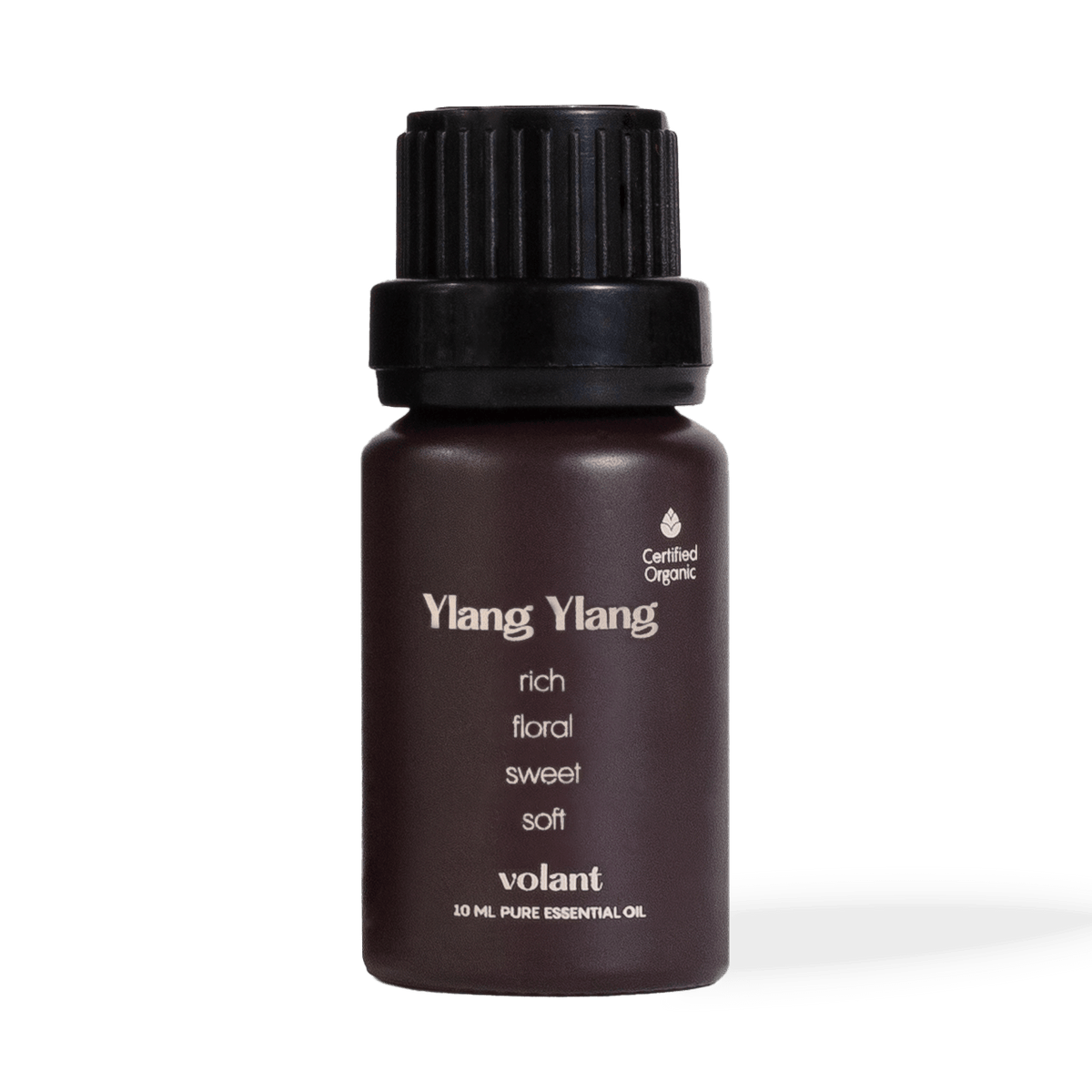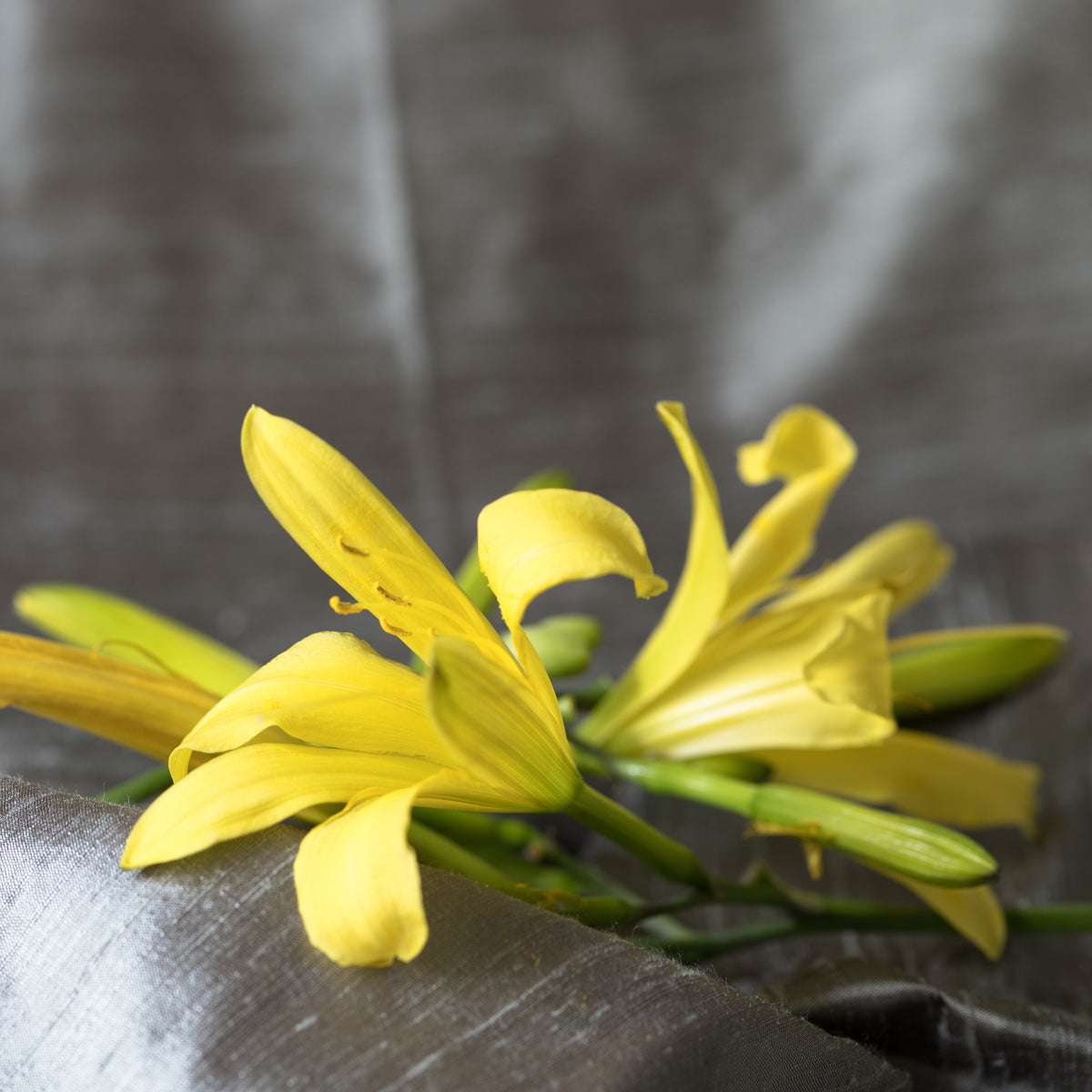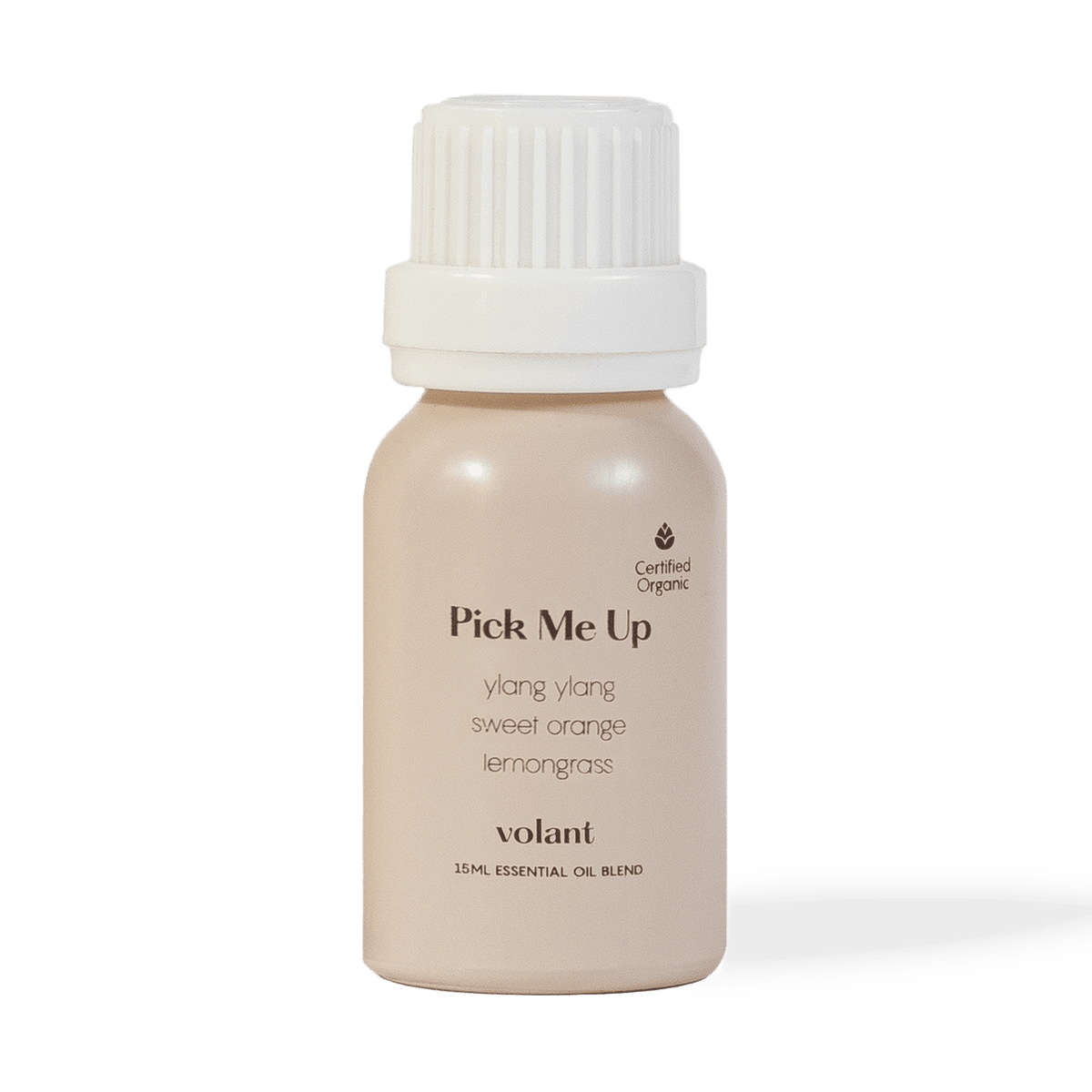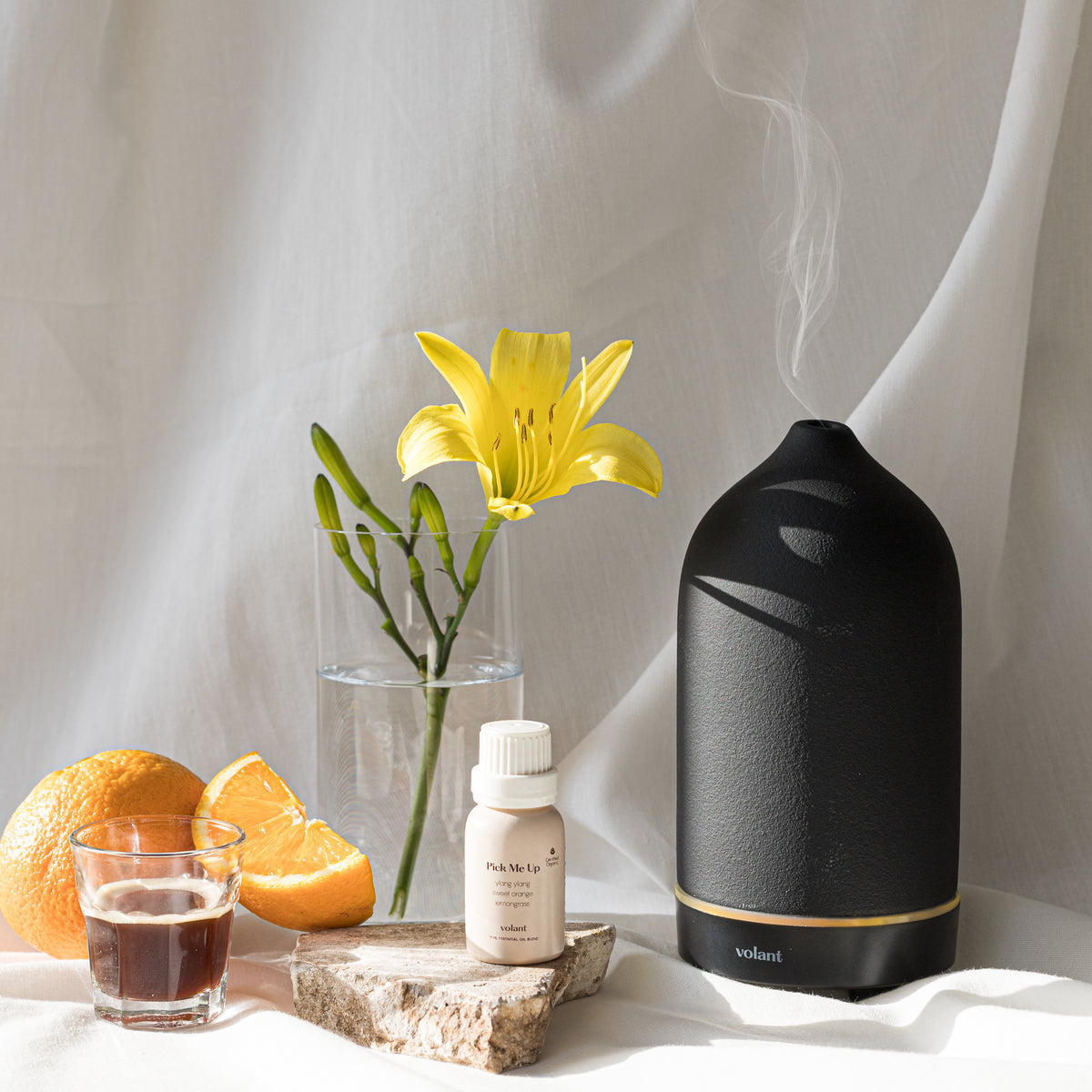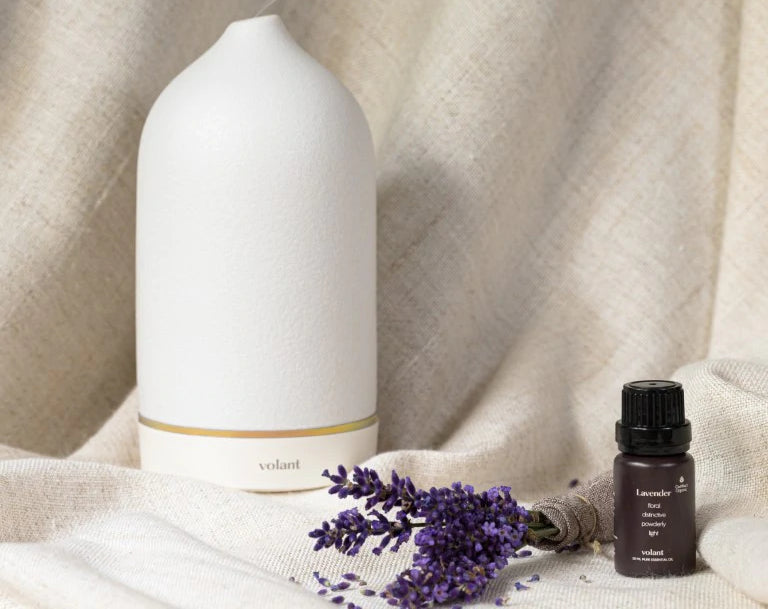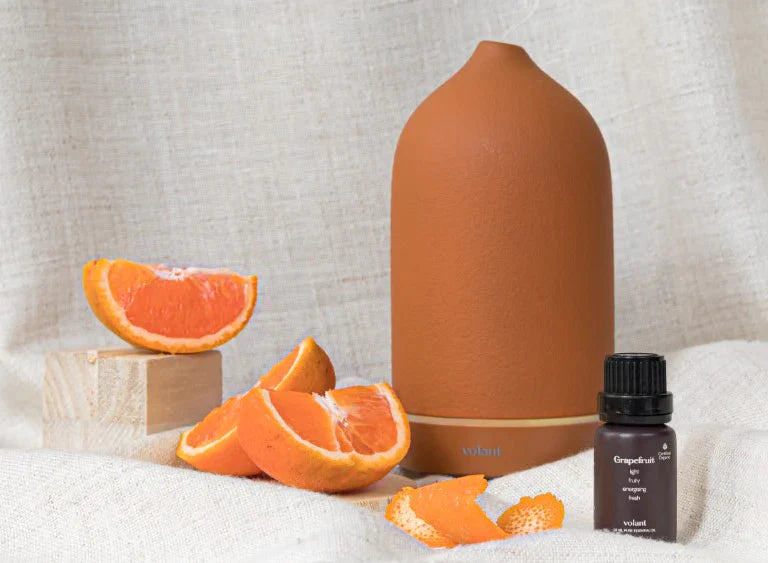Well, you can!
Discover how you can use essential oils to lift your mood and make the darkest days a little brighter and lighter.
Why you should use essential oils for depression

It’s quite easy to see why using essential oils for depression makes so much sense. They’re all natural, non-chemical and can provide relief, especially if you’re suffering from common side effects of depression, like feelings of anxiety or battling to sleep.
Certain healthcare providers recommend more exposure to nature to patients suffering from depression. Essential oils can offer the same kind of support, especially those that have been anecdotally and clinically shown to help with the symptoms of depression.
It is important to note that you should always speak to your healthcare practitioner if you have depression. You may have a condition that also requires medication or you may need additional help coping with the effects of a depressive disorder.
How to use essential oils for depression
There are many different essential oils available and multiple ways to incorporate them into your lifestyle. Use the method that suits you, or try them all!
Diffusion

Putting the right essential oils into your diffuser will fill the air around you with their wonderful aroma. The atmosphere of the room will be transformed, and you’ll create a space where you feel happier, more calm mentally and uplifted overall.
This is a highly recommended way to use essential oils for sleep and anxiety, especially because you can safely use a diffuser while you sleep.
Inhalation

Photo: Luxebeat Magazine
Aromatherapy inhalers make it possible for you to breathe in essential oils directly. This is a brilliant alternative to sniffing the open bottle, where you risk your skin coming into contact with concentrated oil, and it works well if you’re in an environment where using your diffuser is not an option. It’s also convenient to tuck in your bag or car and use it while you’re on the go.
Inhalation is one of the best ways to use essential oils for anxiety and depression.
Topical application

Essential oils are lipid-soluble substances. This means they can penetrate the skin easily, allowing for rapid absorption. If using essential oils on your skin appeals to you, you have several options. You could:
- Add essential oils to skin cream
As your cream nourishes the skin, you can benefit from massaging areas to relieve tension too. - Bathe with oils
Create a bath blend using the oil(s) you’ve selected and a carrier oil and add a few drops to a hot bath. This is a wonderful option if you’re using essential oils for sleep and anxiety as the heat will help relax you too. - Create a massage oil
Mix essential oil and a suitable carrier oil together and apply it to your body in a gentle rubbing motion. This is by far the most enjoyable way to use essential oils for anxiety and depression! And if you have someone else massage you, you’ll benefit from their touch as well.
The long-term benefits of using essential oils for depression
Using essential oils for extended periods of time doesn’t come with negative side effects. In fact, when they’re an integrated part of your day-to-day life, the positive results you’re getting from them can even be amplified.
Using essential oils will help you to:
Centre yourself

Depression can manifest as feelings of being mentally scattered and overwhelmed. Essential oils can help counteract these interrupting, ruminative tendencies and help you to not overthink. Using essential oils for sleep and anxiety can also make you less prone to these types of responses.
Elevate your mood

Using essential oils for anxiety and depression can foster feelings of cheerfulness, happiness, light-heartedness and optimism, and may even inspire joy.
Ground yourself

If your depressive thoughts result in you feeling a sense of disconnection from yourself and you’re struggling to settle and focus, essential oils can help. Their scent in your environment can encourage you to relax inwards and be in the moment.
Top essential oils for depression and its symptoms
With evidence of their use going all the way back to Ancient Egypt, it’s safe to say that essential oils have been a go-to for the treatment of many conditions for thousands of years now. In Ancient Greece, for instance, there is evidence of oils being used medicinally. Hippocrates, the Greek physician and so-called father of medicine, was using them for healing in the 5th century BCE.
The Ancient Chinese used essential oils as mood enhancers and myrrh was a popular choice for treating pain in Ayurveda medicine around three thousand years ago.
Think of good mood essential oils as another way to help you to deal with certain symptoms. Speak to your doctor about using these oils to help manage your conditions safely:
Bergamot

Bergamot essential oil may be helpful in treating anxiousness and stress, two symptoms commonly associated with depression. It has other benefits too, including offering relief from acne, food poisoning, inflammation, pain and stress.
While anxiety and depression are two separate mental disorders, it’s common for them to occur together.
The enjoyable scent of this essential oil for anxiety and depression may help you feel less ragged and run down.
Chamomile

The calming properties of Roman chamomile essential oil are a fantastic way to ensure you start getting quality sleep. Insomnia can play a significant role in the lives of people affected by depression and may, in turn, cause either the onset of other symptoms or those already occurring to worsen.
The flowers of this little perennial are what create the oil’s green, herbaceous, sweet aroma that has a hint of apple and helps quiet your mind.
This is why it’s such a popular essential oil for sleep and anxiety disorders.
Ginger

When it becomes a part of your aromatherapy treatment, ginger essential oil can allay feelings of anxiety, depression and exhaustion. Its warming quality means it’s a wonderful sleep aid and it may also foster feelings of ease and courage in those exposed to it.
Practitioners of Ayurvedic medicine believe that ginger oil can help you get a handle on emotional issues like abandonment, fear, low self-confidence and a lack of motivation.
Its distinct aroma is as spicy as it is comforting, and it’s a top choice if you’re looking for essential oils for anxiety and depression.
Lavender

If you’re struggling with high anxiety, elevated stress levels, low mood and overall tension, consider using lavender essential oil. It can alleviate insomnia and calm you down as well as treat acne, burns, eczema, hair loss and headaches.
Lavender’s earthy, floral scent sets a wonderful mood and can go a long way towards feelings of sadness and despair.
Ylang Ylang

Emotional and mental upset frequently have physical effects on our bodies. Ylang ylang essential oil is regarded as a good treatment for anxiety because it can lower our blood pressure, one of the side effects of feelings of worry.
Using ylang ylang will also slow your breathing, helping to turn off fight-or-flight responses and reducing stress. Using it in a diffuser or as an inhalant is particularly effective because of how quickly it can reach your brain. This classifies it as an excellent mood essential oil.
Research findings
Research has shown how using essential oils can help minimise the effects of depression.
Aromatherapy can help reduce your stress levels and has an impact on the nervous system. Essential oils have a range of therapeutic qualities, including anti-inflammatory, antibacterial, antioxidant, antiseptic and febrifuge properties.
Their benefits also extend to our mental and emotional health, as these studies clearly show. Every essential oil will affect your mood in some way because smells are attached to your memory centre in the brain called the limbic system. Here are just a few pieces of research on the subject - and this is barely the tip of the iceberg, as altering mood is one of the primary uses for aromatherapy.
The effects of ylang ylang on calm and relaxation
In this 2006 study, exposure to ylang ylang oil resulted in a notable decrease in blood pressure and a noteworthy increase in skin temperature in participants.
At the behavioural level, the self-evaluations of the members of the ylang ylang group reported that they were calmer and more relaxed than those in the control group.
These sorts of studies, along with individual responses to ylang ylang, are why it’s held to be one of the most incredible essential oils for anxiety and depression.
Lavender essential oil and mental health in women after childbirth
Women who inhaled the fragrance of lavender essential oil for four weeks postpartum were found to experience less anxiety, depression and stress. The particular biological conditions in the post-childbirth period due to the drop in hormonal levels were taken into account and the results were encouraging.
Aromatherapy can help with depression
According to a review of 12 studies, aromatherapy has potential as a type of therapy to help with depression for an assortment of subjects.
Bergamot, cedarwood essential oil and lavender were particularly effective, and massage was the most constructive way to apply them. Consider using these essential oils to lift your mood.
Essential oils’ effects on mood disorders
A 2021 review looked at the effects of essential oils in animal and human clinical studies alike, focusing on their anxiolytic and antidepressant effects. The interaction of the central nervous system and the respiratory system was also briefly focused on. It was concluded that the two systems’ interconnections mean that the effects of essential oil molecules on mood issues can be seen through various physiological responses in the body.
Effective blends of essential oils to lift your mood
When you dilute your essential oils, you make it possible to use them without having to suffer through any potentially negative side effects as a result of how concentrated they are - you’ll be safer. You’ll also make them last longer and go further!
Additionally, when you blend them properly, not only can you increase their efficacy at whatever you’re trying to target, but you can also address multiple issues at the same time.
Volant’s Relax blend

Unwind with the soft scent of an expert combination of eucalyptus, grapefruit, palmarosa and ylang ylang in our Relax Blend. Combat mental exhaustion with eucalyptus, use the grapefruit essential oil to lift your mood, assuage grief with palmarosa and give your self-esteem a boost with ylang ylang.
Hold on to hope DIY blend
Mix together 1 drop each of lavender and ylang ylang oil with 3 drops of sweet orange essential oil. Lavender may address sleep disorders, ylang ylang can help with anxiety, and the bright citrus scent of orange can be a fabulous pick-me-up. These are all essential oils to lift your mood.
Feel better DIY blend
Combine a drop of Roman chamomile oil with 2 drops each of frankincense essential oil and jasmine. Soothing chamomile, romantic jasmine and frankincense’s anti-stress, grounding and centering properties may help you keep your chin up and feel the strength and grit to get up and get going.
Fight the good fight DIY blend
Add 3 drops of sweet orange oil to 2 drops each of clary sage and grapefruit. Grapefruit essential oil and sweet orange may lower stress and clary sage may induce feelings of well-being when you’re feeling low. Use this essential oil blend for happiness and peace.
Pick Me Up blend by Volant

Our Organic Pick Me Up Blend is a revitalising mix of lemongrass, sweet orange and ylang ylang. Lower your levels of anxiety with lemongrass while sweet orange is a good mood essential oil and ylang ylang helps you get the rest you need, making this one of the top essential oil blends for happiness.
FAQs
Do essential oils work as a treatment for depression?
They are a viable natural support for you if you are experiencing depression. Research shows that some essential oils can improve certain physical and psychological depression symptoms.
Which essential oils are good for depression?
Bergamot, chamomile, ginger, grapefruit, lavender, sweet orange and ylang ylang can all be effective essential oils to lift mood.
How should I use essential oils for depression?
You can diffuse them, inhale them directly, use them in your bath, as a massage oil, or in a room spray or linen mist.
What do good mood essential oils do?
Essential oils impact the limbic system in your brain where your emotions are controlled and processed.
Can I replace my antidepressants with essential oils?
It depends. Talk to your doctor about incorporating aromatherapy into your current treatment and discuss your options with them.
An all-natural depression damper

Depression affects the way we act, feel and think, and although it’s classified as a mood disorder, it manifests in symptoms that are emotional and physical. These can include but are not limited to anxiety, despair, difficulty concentrating, restlessness and sadness.
The research tells us that essential oils are a real possibility as an alternative or complementary treatment for depression. To put it simply, using essential oils to lift your mood can be a very viable approach to your issue.
As long as you check with your medical practitioner, use them responsibly and stick to high-quality oils, there’s no reason they won’t help you with your depressive symptoms. You may even find that you stumble upon, or create, an essential oil blend for happiness that gives you exactly what you need.
At Volant, our customers’ happiness, health and satisfaction are a priority. With a superior diffuser design featuring state-of-the-art technology and essential oils that are 100% certified pure and organic, we can help you begin your journey with aromatherapy using good mood essential oils.




